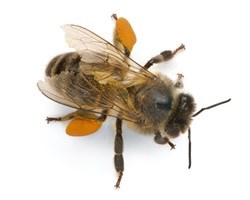
Top stories

Marketing & MediaBehind the campaign: Reframing fairness in ride-hailing: The inDrive success story
inDrive 3 hours





More news

















This is the view of Prof Theresa Wossler, a behavioural ecologists specialising in bees, wasps and ants from Stellenbosch University. Recent reports indicate that close to 40% of all commercially kept bee colonies in the Western Cape are infected, with little information about what is happening in the rest of the country.
"The South African bee industry and government have been fortunate over the years not to have to deal with disease outbreaks and thus do not have the structures in place to cope with an impending epidemic, so it is a race against time to get the structures in place," she says.
AFB is one of the most widespread and destructive bee brood diseases in the world. The first Cape honeybee (Apis mellifera capensis) colonies with clinical symptoms of AFB were confirmed in the Western Cape in 2009.
The spore-forming bacterium, Bacillus larvae, causes the disease, entering the digestive tract of the larva with food. The spores germinate in the mid-gut, finally penetrating the gut wall, killing the larva, which then emits a rotten smell. The bacteria sporulate in the dead larva releasing up to 2500 million spores.
Eventually the entire colony becomes weakened with other colonies becoming contaminated within the apiary through the transmission of spores, starting a new cycle of infection.
It is exceptionally difficult to kill the spores: "The spores can exist in the environment for up to 40 years and are extremely resistant to any chemical treatments. The only effective solution is to burn all the affected colonies and the equipment."
Prof Wossler reckons the industry will have a better idea of how to combat the disease if it knows what strain of AFB is affecting the bees: "There are four genotypes of AFB that we know of with different levels of virulence. Two of the genotypes have not been isolated from AFB diseased colonies in recent years. In other words, until we know what we are dealing with, any efforts to combat the disease are in vain."
Another option is to identify colonies that show tolerance to the disease. "Africanised bees have shown more resistance to diseases, supposedly because of their hygienic behaviour. For example, they will take out the sick larvae quicker than other honeybee subspecies. If we can identify those colonies of honeybees with increased resistance, bee keepers can introduce breeding programmes to increase the resistance levels of the honeybee population to AFB," she concludes.
The Western Cape deciduous fruit industry, which is worth R9800 million per year, is heavily reliant on pollination services from managed honeybees.